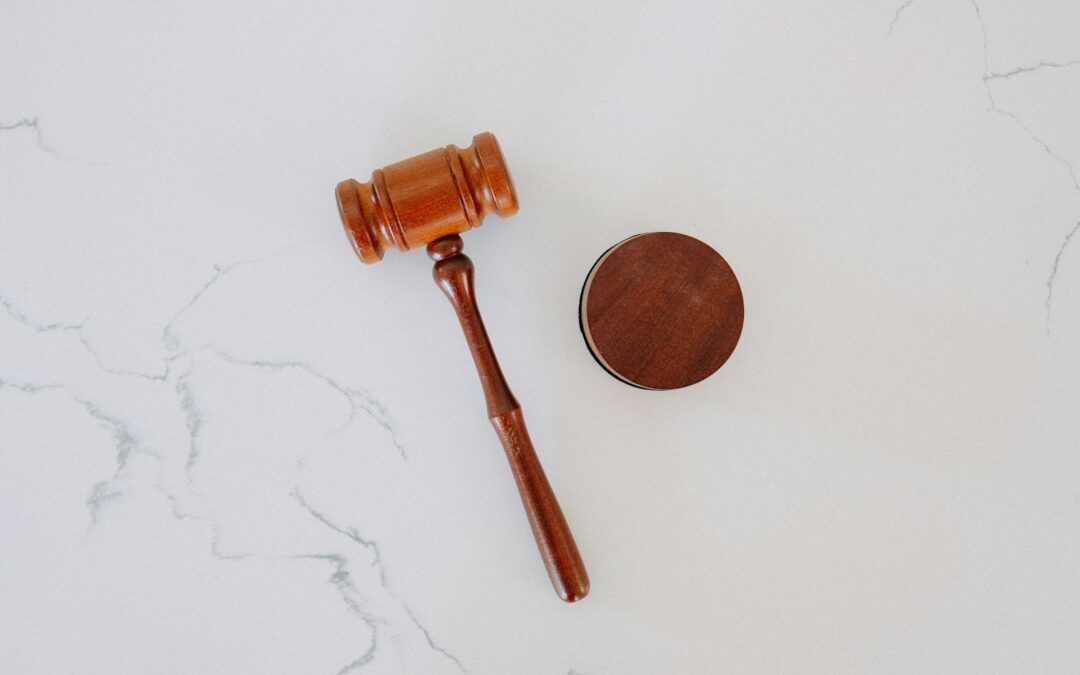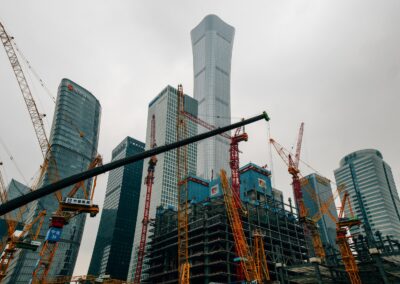The Essential Role of Legal Structures in Shaping the Future of the Metaverse
The Importance of Legal Frameworks in the Metaverse
The development of legal frameworks for the metaverse is essential for addressing issues such as virtual property rights, intellectual property, and user protection. As the metaverse expands, these legal structures become crucial in maintaining order, ensuring fairness, and protecting the interests of all participants. In regions like Saudi Arabia and the UAE, where technological innovation and digital transformation are rapidly advancing, establishing robust legal frameworks is vital for the sustainable growth of the metaverse.
Virtual property rights are a fundamental aspect of the metaverse. These rights pertain to the ownership and control of digital assets, such as virtual land, buildings, and items. Without clear legal guidelines, disputes over ownership and usage can arise, potentially hindering the development of virtual economies. In cities like Riyadh and Dubai, where investment in virtual real estate and digital assets is increasing, defining and protecting virtual property rights through legal frameworks can foster trust and encourage further investment.
Intellectual property (IP) protection is another critical issue in the metaverse. Creators of digital content, such as art, music, and software, need assurance that their work will be protected from unauthorized use and infringement. Legal frameworks that address IP rights in the metaverse can provide this assurance, promoting creativity and innovation. In the Middle East, where the creative industries are burgeoning, implementing comprehensive IP laws for the metaverse can support artists, developers, and businesses, driving economic growth and cultural enrichment.
User protection is also paramount in the metaverse. Users need to feel safe and secure while interacting in virtual environments. Legal frameworks that address issues such as privacy, data security, and harassment can enhance user trust and participation. In regions like Saudi Arabia and the UAE, where user experience and safety are priorities, developing and enforcing user protection laws in the metaverse can ensure a safe and inclusive digital space.
Challenges in Establishing Legal Frameworks for the Metaverse
While the need for legal frameworks in the metaverse is clear, establishing these structures presents several challenges. One of the primary challenges is the complexity and novelty of the metaverse itself. The metaverse is a rapidly evolving digital landscape that encompasses a wide range of activities, from social interactions to commerce and entertainment. This complexity makes it difficult to create comprehensive legal guidelines that cover all aspects of the metaverse.
Jurisdictional issues also pose a significant challenge. The metaverse operates on a global scale, transcending physical borders. This global nature makes it challenging to determine which laws apply and how to enforce them. For example, a virtual property transaction between users in Riyadh and Dubai may involve legal considerations from both jurisdictions. Developing harmonized legal frameworks that can operate across different countries and regions is essential for addressing these jurisdictional challenges.
Another challenge is the enforcement of legal frameworks in the metaverse. Virtual environments can be anonymous and decentralized, making it difficult to monitor and enforce compliance. Blockchain technology can provide some solutions by creating transparent and immutable records of transactions and activities. However, additional mechanisms and collaborations between governments and technology providers are necessary to ensure effective enforcement. In the Middle East, where digital regulation is evolving, finding the right balance between innovation and regulation is crucial for the success of the metaverse.
Solutions and Best Practices for Legal Frameworks
To overcome the challenges of establishing legal frameworks for the metaverse, several solutions and best practices can be adopted. One effective approach is the creation of international agreements and standards. By collaborating on a global scale, countries can develop harmonized legal frameworks that address common issues and facilitate cross-border interactions in the metaverse. In regions like Saudi Arabia and the UAE, participating in international discussions and agreements can help shape effective and inclusive legal structures for the metaverse.
Public-private partnerships are also essential for developing and implementing legal frameworks in the metaverse. Governments can work with technology providers, legal experts, and industry stakeholders to create comprehensive and practical guidelines. These partnerships can ensure that legal frameworks are informed by the latest technological advancements and address the real-world needs of businesses and users. In cities like Riyadh and Dubai, fostering collaboration between the public and private sectors can drive the development of robust legal frameworks for the metaverse.
Education and awareness are also crucial for the successful implementation of legal frameworks. Users, businesses, and developers need to understand their rights and responsibilities in the metaverse. Educational programs and awareness campaigns can provide this knowledge, promoting compliance and fostering a culture of respect and responsibility. In the Middle East, where digital literacy is a key priority, investing in education and awareness can support the effective enforcement of legal frameworks in the metaverse.
Case Studies and Strategic Insights
Saudi Arabia and the UAE: Pioneers in Metaverse Regulation
Saudi Arabia and the UAE are at the forefront of developing legal frameworks for the metaverse. Both countries have recognized the importance of establishing clear legal guidelines to support the growth of digital economies and protect the interests of all participants. By investing in legal research and collaborating with international partners, Saudi Arabia and the UAE are pioneering efforts to create effective legal structures for the metaverse.
In Saudi Arabia, the government has launched several initiatives to explore and regulate the metaverse. For example, the Saudi Digital Authority is working on developing guidelines for virtual property rights and IP protection. These efforts aim to create a secure and transparent environment for digital transactions and content creation. By leading these initiatives, Saudi Arabia is setting a benchmark for metaverse regulation in the region and beyond.
Similarly, the UAE is actively working on developing legal frameworks for the metaverse. Dubai’s government has established the Dubai Virtual Assets Regulatory Authority (VARA) to oversee virtual assets and transactions in the metaverse. VARA aims to create a secure and regulated environment for virtual property and digital currencies, promoting trust and innovation. By taking proactive steps to regulate the metaverse, the UAE is positioning itself as a global leader in digital innovation and regulation.
Strategic Insights for Developing Legal Frameworks
Developing effective legal frameworks for the metaverse requires a strategic and collaborative approach. One key insight is the importance of flexibility and adaptability. The metaverse is a rapidly evolving digital landscape, and legal frameworks need to be flexible enough to accommodate new developments and challenges. Governments and regulators should adopt a forward-thinking approach, anticipating future trends and technologies. In regions like Riyadh and Dubai, where technological innovation is a priority, flexible legal frameworks can support sustainable growth and innovation in the metaverse.
Another important insight is the need for stakeholder engagement. Developing legal frameworks should be an inclusive process that involves all relevant stakeholders, including businesses, users, legal experts, and technology providers. By involving stakeholders in the decision-making process, governments can ensure that legal frameworks are practical, comprehensive, and widely accepted. In the Middle East, where collaboration and community engagement are highly valued, involving stakeholders can enhance the effectiveness and legitimacy of legal frameworks.
Finally, leveraging technology can enhance the development and enforcement of legal frameworks. Technologies such as blockchain, AI, and machine learning can provide solutions for managing digital rights, ensuring compliance, and monitoring virtual environments. By integrating these technologies into legal frameworks, governments can create more effective and efficient regulatory systems. In regions like Saudi Arabia and the UAE, where technological innovation is at the forefront, leveraging technology can drive the success of legal frameworks in the metaverse.
Conclusion: The Future of Legal Frameworks in the Metaverse
The development of legal frameworks for the metaverse is essential for addressing issues such as virtual property rights, intellectual property, and user protection. As the metaverse continues to expand, these legal structures will play a crucial role in maintaining order, ensuring fairness, and protecting the interests of all participants. In regions like Saudi Arabia and the UAE, where technological innovation and digital transformation are rapidly advancing, establishing robust legal frameworks is vital for the sustainable growth of the metaverse.
By overcoming challenges related to complexity, jurisdiction, and enforcement, and adopting solutions such as international collaboration, public-private partnerships, and education, countries can develop effective legal frameworks for the metaverse. Saudi Arabia and the UAE are pioneering efforts in this area, setting benchmarks for metaverse regulation and positioning themselves as global leaders in digital innovation.
As the metaverse evolves, the continuous development and adaptation of legal frameworks will be crucial for realizing its full potential and achieving long-term growth and sustainability. By embracing a strategic, flexible, and collaborative approach, regions like Riyadh and Dubai can drive the success of the metaverse and create a secure, innovative, and inclusive digital future.
—
#legalframeworks #metaverse #virtualpropertyrights #intellectualproperty #userprotection #AI #blockchain #SaudiArabia #UAE #Riyadh #Dubai #moderntechnology























